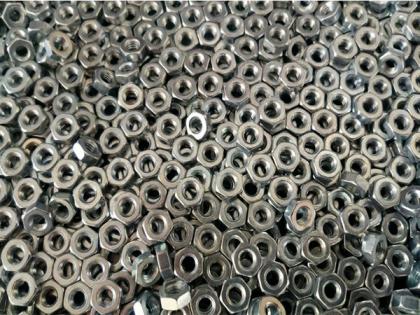Domestic steel industry needs to maintain global standards to become world leader: Commerce Joint Secy
By ANI | Updated: September 9, 2025 15:35 IST2025-09-09T15:34:20+5:302025-09-09T15:35:03+5:30
New Delhi [India] 9 September : The Government urged domestic steel producers to meet and maintain global standards to ...

Domestic steel industry needs to maintain global standards to become world leader: Commerce Joint Secy
New Delhi [India] 9 September : The Government urged domestic steel producers to meet and maintain global standards to provide a thrust to the sector.
Addressing the ISA Steel Conclave at New Delhi on Tuesday, Joint Secretary in the Commerce Ministry, Vimal Anand, said, "If we want to reach the top, we have to pay attention to global standards and sustainability goals."
India is the world's second-largest crude steel producer and is set to become a global leader in steel capacity and production by 2030-31.
"In steel, we are the second largest producer with an annual production capacity of 200 million tonnes, which is remarkable. We are trying to become a world leader," Anand said. The industry aims to increase its production capacity to 300 million tonnes by 2030.
The industry is also facing a major constraint in the form of the Carbon Border Adjustment Mechanism (CBAM). "CBAM is going to be the most important issue to be discussed, and negotiations are on the table. We try to get a soft landing, but it is something that we can't deny," he said.
CBAM applies to certain carbon steel products, which are covered under the European Union's Carbon Border Adjustment Mechanism to ensure imported goods bear the same carbon price as EU-made ones, preventing "carbon leakage".
This mechanism requires the reporting of embedded carbon emissions in imported carbon steel products and will ultimately result in the collection of a carbon cost.
"We have to protect the common heritage that is Mother Earth," Anand noted.
India is the world's largest soft power and the fourth-largest economy, and is on its way to becoming the third-largest economy, he added.
As of now, the industry has to think about sustainability and developmental concerns, he said, adding, "For advancing, Capex is one of the elements we have to start thinking and start putting expenditures."
"For that, there is a need for discussion to come up with the solutions," he said. Big ones in the industry are already trying to comply with the norms.
On recycling of scrap iron, Anand said that recycling scrap is very important. "For the automobile, we have started already," he asserted.
However, in comparison to other countries in the world, India doesn't have enough scrap. In India, most scrap collection occurs in the grey market. This is one of the issues going to be covered soon by the government.
"Since the duty has been reduced, it is giving more incentives to scrap dealers to come to the economy in an organised manner," he said.
India continued its basic customs duty exemption on ferrous scrap until March 31, 2026, as part of the Union Budget 2024-25 to support the domestic steel industry.
"With new GST reforms, we believe this issue would be covered very well," he added
Disclaimer: This post has been auto-published from an agency feed without any modifications to the text and has not been reviewed by an editor
Open in app